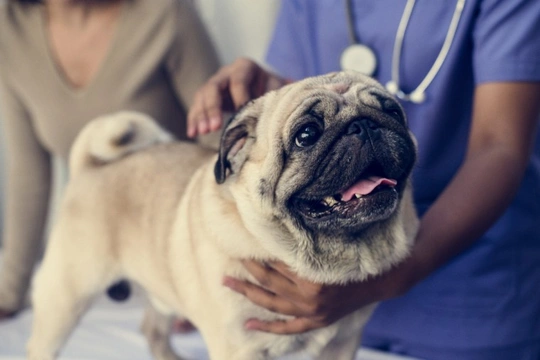
What to expect if your dog needs to see the vet whilst the coronavirus threat continues
As coronavirus begins to take hold and spread across the UK, businesses of all types are being forced to make a difficult decision on whether or not to stay open. However, for some businesses, there really is little to no choice at all due to the nature of the services they offer, and the impact that would ensue if they stopped trading; and veterinary clinics are one example of this.
Dogs and other pets don’t stop getting sick just because the human population is facing a huge threat to its own health, and veterinary clinics up and down the UK are working hard to continue to provide a service to safeguard and treat pets, whilst doing everything possible to avoid contributing to the spread of the human coronavirus.
Balancing these two things; continuing to treat dogs and deal with owners whilst following appropriate protocols to reduce the risk of spreading coronavirus among people and of course, keeping the staff serving you and your dog healthy, is a huge challenge for any clinic.
Your vet might make a number of requests and ask you several questions before you even get to the clinic, or you might be offered alternative options to bringing your dog to the clinic entirely; and these might seem odd, but it is vitally important that you follow all of them as directed.
Each veterinary clinic’s coronavirus policies and procedures will be different, but this article will explain what to expect if your dog needs to see the vet while the coronavirus threat continues, and what you might be asked to do to enable this. Read on to learn more.
You might be asked questions about your own health when you call
When you call your vet for an appointment, you’re probably used to being asked a few basics about what the issue is and your dog’s own health. However, when you call your vet now, you may well be asked questions about your own health too, and you should answer them honestly.
Veterinary staff need to protect their own health and that of their other clients, and this is integral to their being able to take care of your dog as well.
Expect to be asked if you are showing any symptoms of coronavirus, if you or anyone you live with might be carrying the condition, and if you or anyone you live with are in a higher risk group.
You may receive special directions or be asked to have someone else bring your dog to the clinic if there are any concerns on any count.
You may be offered a video consult
Some veterinary clinics offer video consults in support of face-to-face visits, and whilst these are by no means appropriate for every case and situation, more and more clinics are doing this where possible in the wake of the coronavirus outbreak.
In fact, the main tech platform that provides the software to enable this has recently announced that they will be providing it to clinics for free for the duration of the outbreak, so don’t be surprised if your vet offers you a remote consult if this might be appropriate instead; albeit many issues need to be examined physically.
You may be mailed medications
If you need to get a repeat prescription for your dog or pick up their usual flea and worming treatments, your vet might arrange to get these couriered or posted to you instead, to negate the need for a trip to the clinic to pick up essentials. The same may be true for prescription foods.
You may be asked to wait in the car park or an alternative location
Most clinics are trying to avoid contact between members of the public in their clinics, which means doing away with the waiting room. In clinics with car parks, this will generally mean you’re asked to stay in your car upon arrival, call the clinic to let them know you’re outside, and then wait for someone to come and get you.
Alternatively, you may be asked to wait in a consult room, or find that appointment times are staggered so clients do not cross paths.
You’ll almost certainly be asked to follow specific hygiene protocols in the clinic itself
Don’t be surprised if you’re asked to wash your hands immediately upon entering the clinic, and you might also be given other very specific directions on what to do and how to maintain good hygiene practices when you come in. Listen carefully and follow the instructions given, and always ask if you’re not sure.
Wait times may well be longer
You may have to wait longer than normal for non-urgent appointments, or find that the regular consult times have changed. This may be in order to minimise contact between clients once more, and/or due to staff shortages.
You’ll probably be asked to come alone
Clinics are highly likely to permit just one person in with your dog; so don’t bring your partner or kids, as they are likely to be made to wait outside.
You may not be allowed to visit inpatients
Finally, if your dog needs inpatient care of more than a day or so in normal times, you can usually visit them at set times once they are stable and this won’t interfere with their care. This may not be possible in these uncertain times, but is likely to be something that each clinic will consider on an individual basis.



